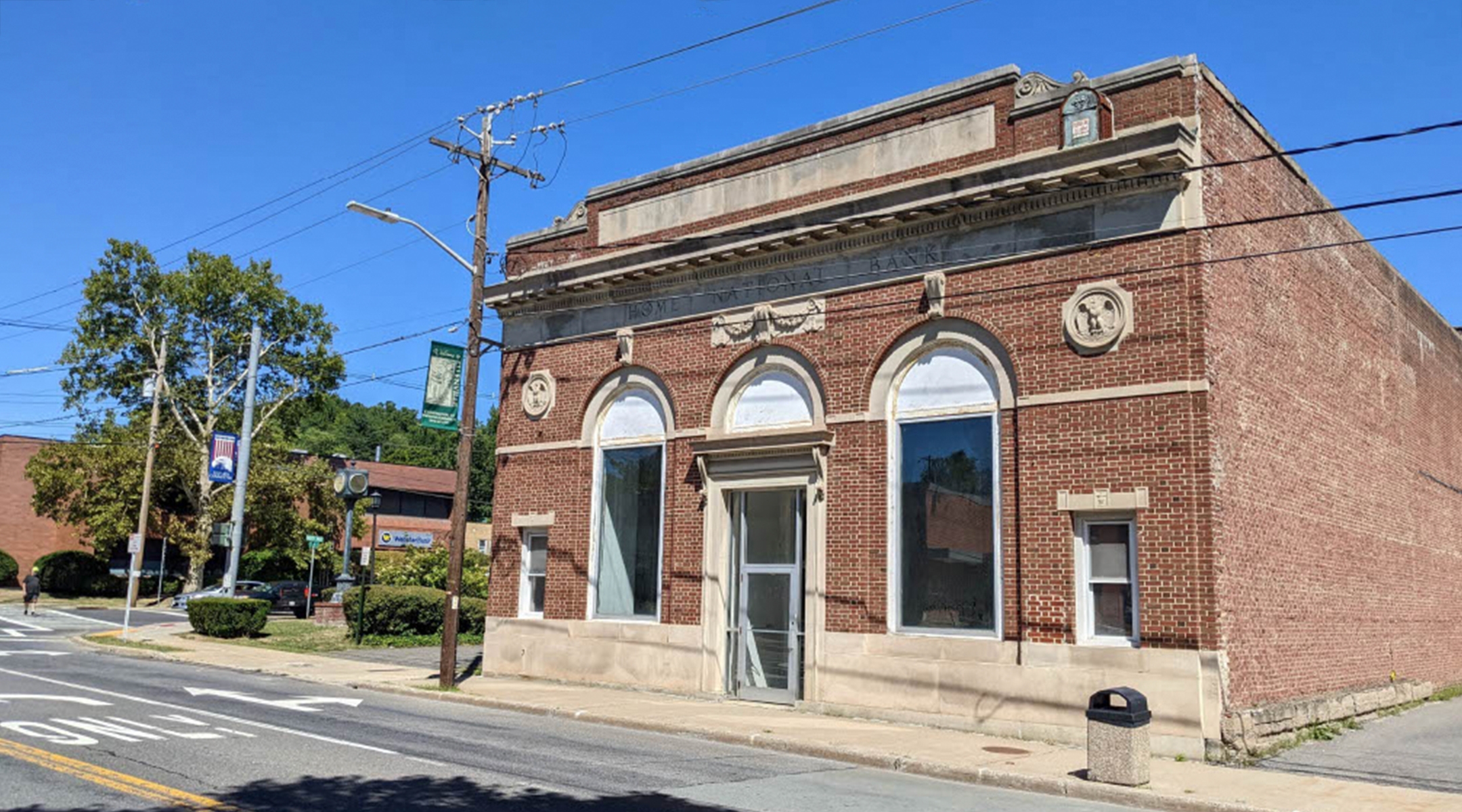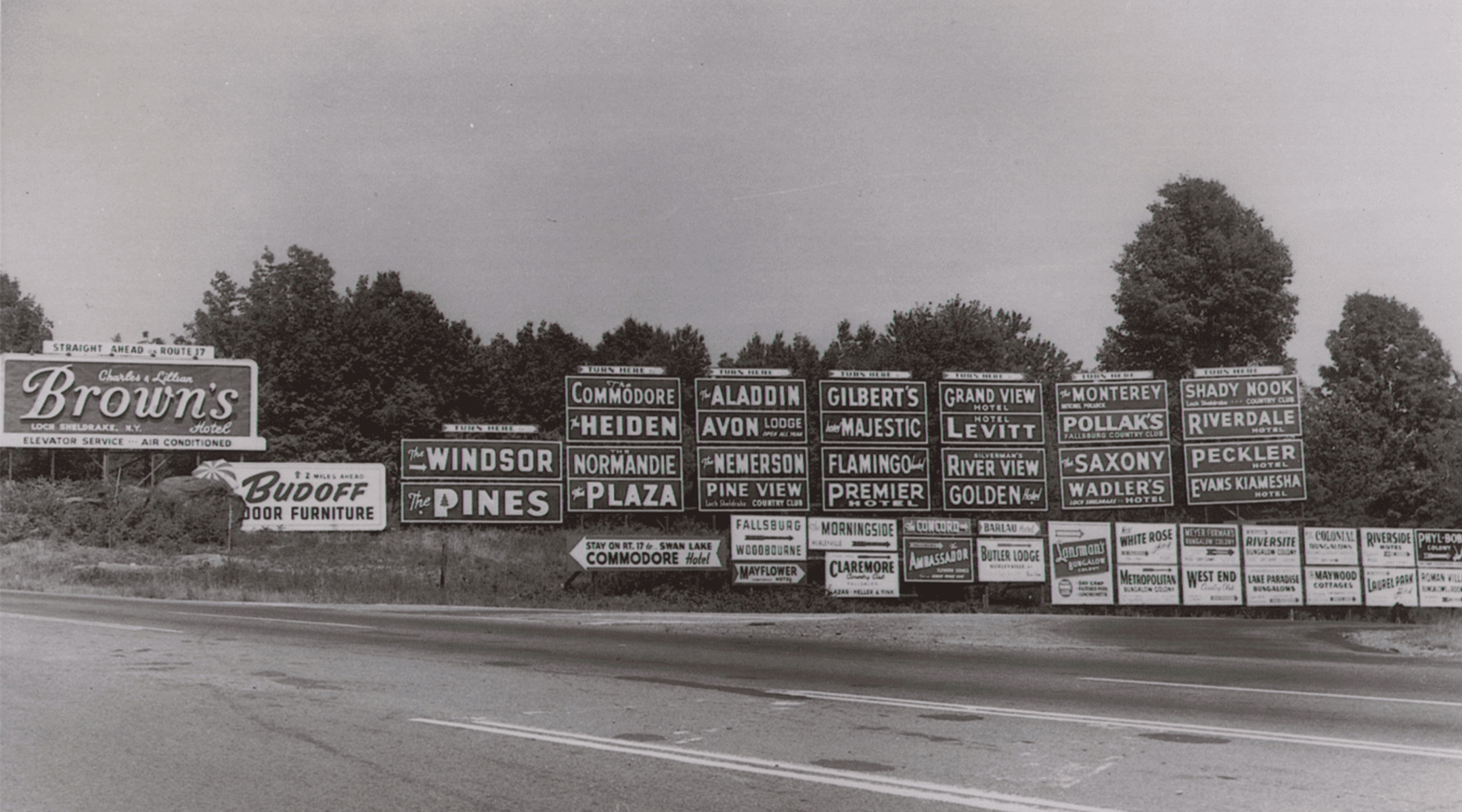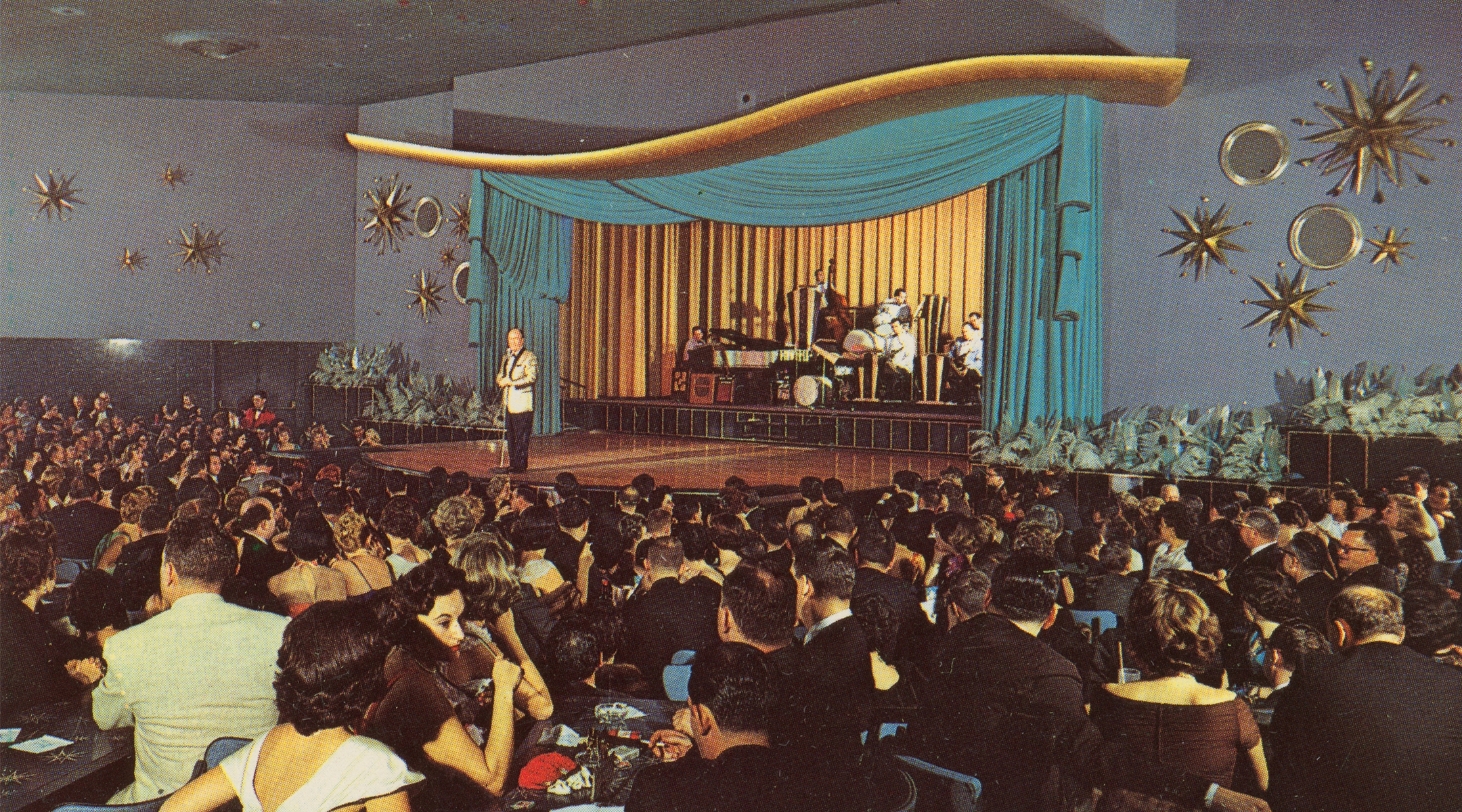(New York Jewish Week) — After a dozen-plus years in the making, the Catskills Borscht Belt museum is set to open in 2025. But for those who can’t wait another two years, the museum is launching a festival to honor the history and culture of the “Jewish Alps” this summer.
The first-ever Borscht Belt Fest will debut on July 29 in Ellenville, New York, about 90 miles from Manhattan.
The one-day festival will pay tribute to the legacy of the Borscht Belt — the colloquial name for the once-ubiquitous resorts and bungalow colonies in parts of Sullivan, Ulster and Orange counties that catered to Jewish families — and its influence on modern American culture. On the lineup are comedy shows, workshops, lectures, exhibits, film screenings and a street fair with plenty of entertainment and Jewish food.
With a few years before the museum opens, the festival is “a way for us to start cultivating a really broad audience for this new cultural institution,” Andrew Jacobs, president of Catskills Borscht Belt Museum’s board of directors and a reporter for The New York Times, told the New York Jewish Week.

The museum will be located in an old bank, pictured above, at 90 Canal Street in Ellenville, New York. (Catskills Borscht Belt Museum)
The timing for the festival and subsequent museum opening, noted Jacobs, is ideal: “We’re tapping into this zeitgeist moment,” he said, pointing to the Amazon Prime hit “The Marvelous Mrs. Maisel” and how it revived interest in the Catskills and its heyday in the 1950s and ’60s.
“Also there’s a sense that this time in history has been unacknowledged, underappreciated nd hasn’t gotten its due,” Jacobs added. “And so I think there’s a sense among people who lived it, or whose parents lived it, like, ‘I want this to be acknowledged, I want it to be honored and celebrated, and I want to be part of that.’”
Like the festival, the forthcoming Borscht Belt Museum will also be in Ellenville, located in a building that was once home to Home National Bank — one of the first banks to lend money to Jewish hotel owners in the 1920s. Exhibits and activities will include archival film and audio, lectures, interactive activities and workshops.
Back in the day, from roughly the 1900s to the 1970s, Route 17, then better known as “The Quickway,” was packed during the summer months with New York Jews making their exodus from the crowded city to the Catskill Mountains. Named after the Ashkenazi beet soup, the Borscht Belt drew travelers upstate for leisure, Yiddish culture, food and entertainment. Many legendary Jewish comedians performed early in their careers at Catskills resorts, including Jackie Mason, Mel Brooks, Woody Allen, Joan Rivers and Jerry Seinfeld.
Of course, Jews also came to the Catskills because they were barred from vacationing at many other popular locales — and therefore they created a vacationland of their own, packing Jewish-owned resorts like Grossinger’s Catskill Resort Hotel and Kutsher’s Hotel and Country Club.
“These institutions shaped American Jewish culture, enabling Jews to become more American while at the same time introducing the American public to immigrant Jewish culture,” according to the Catskills Institute, an organization at Northeastern University promoting research and education about the region and the era.
By the late 1960s, however, with the rise of air travel, more resorts allowing Jews and younger generations choosing other vacation destinations, the lure of the Catskills began to dim. By the 1980s, most resorts and hotels that populated the Borscht Belt were defunct.
The Borscht Belt Festival aims, however briefly, to revive the traditions and culture of the Catskills’ golden age. With a focus on comedy, the festival’s events include “The Borscht Belt Classic,” a homage to family-friendly Catskills comedy, and a talk with writers Alan Zweibel and Bill Scheft about their experiences writing and performing stand-up comedy in the mountains.
Another comedy performance is Luci Pohl’s “Immigrant Jam,” which pays tribute to immigrant culture and experiences — Pohl herself is a Jewish immigrant from Germany — and a standup comedy showcase presented by the Manhattan club the Comedy Cellar.
Pohl, who is a member of the festival’s advisory board, said that rather than choosing a big headliner, the organizers wanted to focus on comedians they can’t see on Netflix, or maybe haven’t heard of yet. Similar to the Borscht Belt, the festival aims to be a place to “discover new talents,” she told the New York Jewish Week.
Other highlights include a “Rocky Horror”-esque screening of “Dirty Dancing” — in which participants are encouraged to dress as their favorite characters and can sing and dance along to the film, set at a Catskills resort — and a concert from the klezmer group The Shul Band. There will also be the first exhibit of the work of the late Holocaust survivor and painter Morris Katz — who was recognized by the Guinness Book of World Record as both the world’s fastest and most prolific artist — put together by a curator from the New-York Historical Society.

Various signs for the resorts and bungalow colonies in the Borscht Belt. (Catskills Borscht Belt Museum)
Jacobs expects some 8,000 to 10,000 attendees at the festival throughout the day. In addition to having a good time and learning about the Borscht Belt, “We want to bring culture back to the Catskills and … develop Ellenville as a kind of a regional cultural hub,” he said.
Looking ahead, Jacobs said the goal is to have the Borscht Belt Museum and its spin-off festival evolve into a brand. They are hoping to host the Borscht Belt Film Festival in Ellenville in the fall; create a stand-up comedy outpost at Ellenville’s Shadowland Theater, featuring monthly shows there; and create year-round programming in both New York City and upstate.
The museum’s first pop-exhibit, curated by the International Center for Photography New York in partnership with the Bard Graduate Center, will be open from early July through the end of the summer at the yet-to-be renovated site of the future museum.
Many Jewish museums “can be a bit depressing — it’s pogroms and the Holocaust, which is important,” said Jacobs, who directed the 2008 documentary “Four Seasons Lodge,” about a Catskills bungalow colony populated by Holocaust survivors. “But I think there’s a real craving for a museum that tells a story about Jews that is triumphant and joyous.”
The Borscht Belt Fest will take place on July 29 in Ellenville, New York. For tickets, visit Borschtbeltfest.org
The New York Jewish Week brings you the stories behind the headlines, keeping you connected to Jewish life in New York. Help sustain the reporting you trust by donating today.





